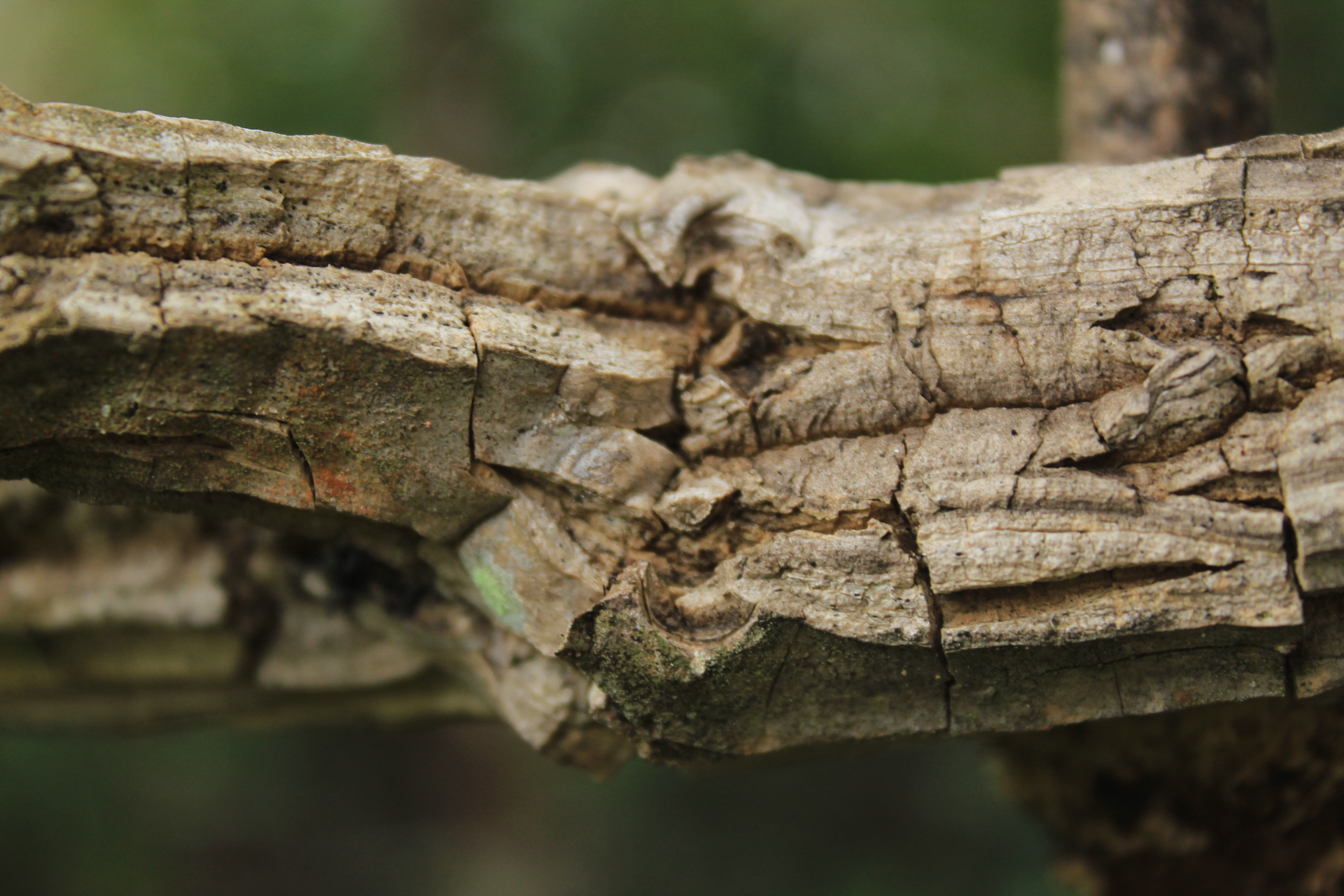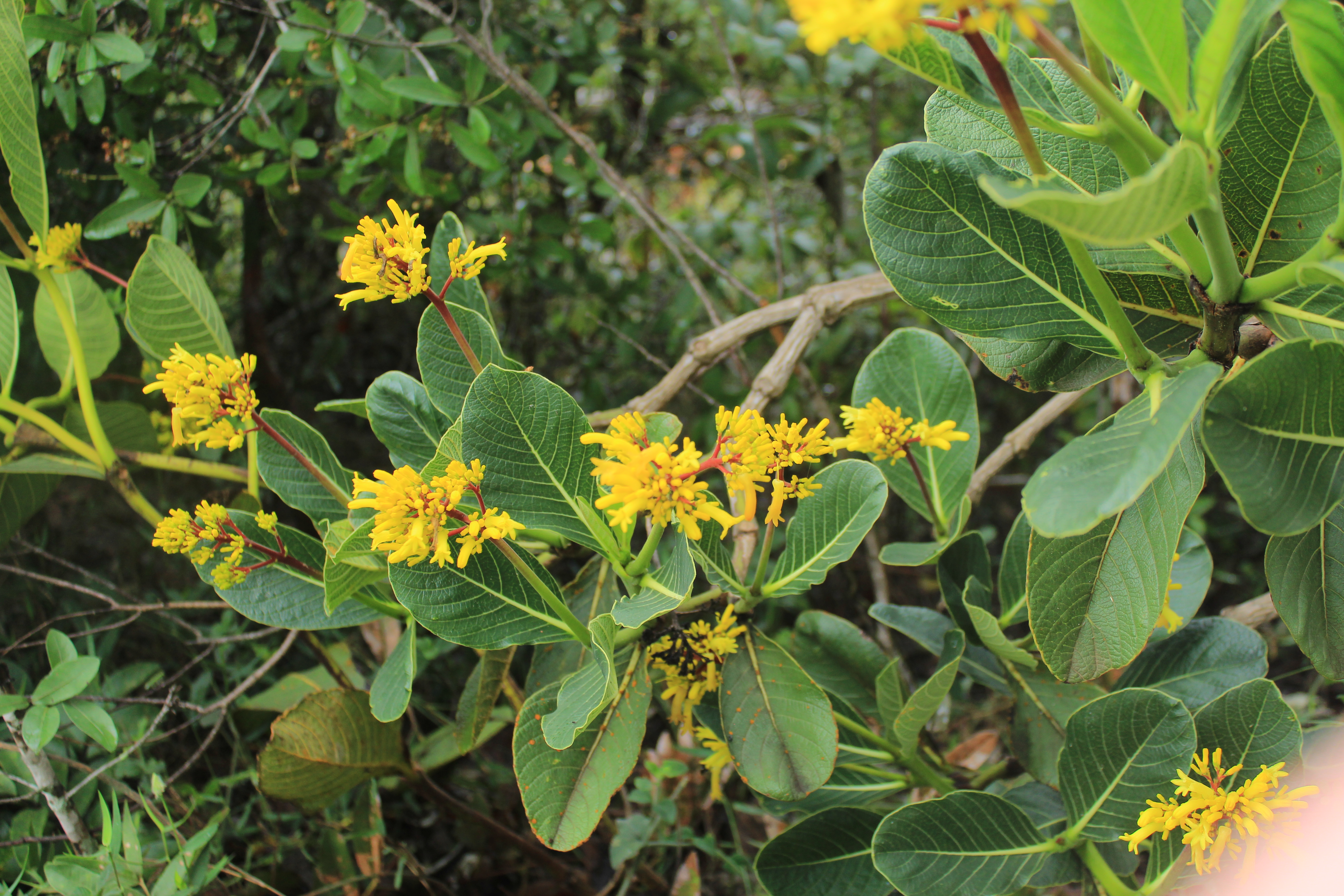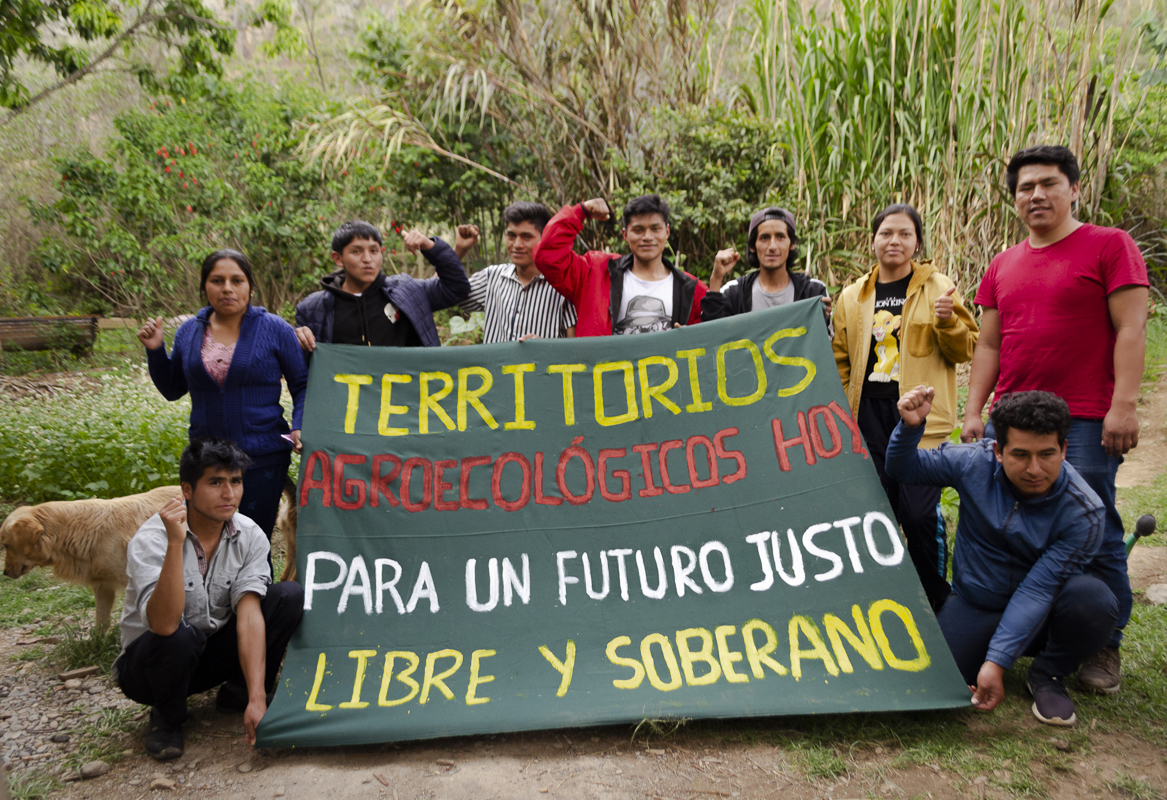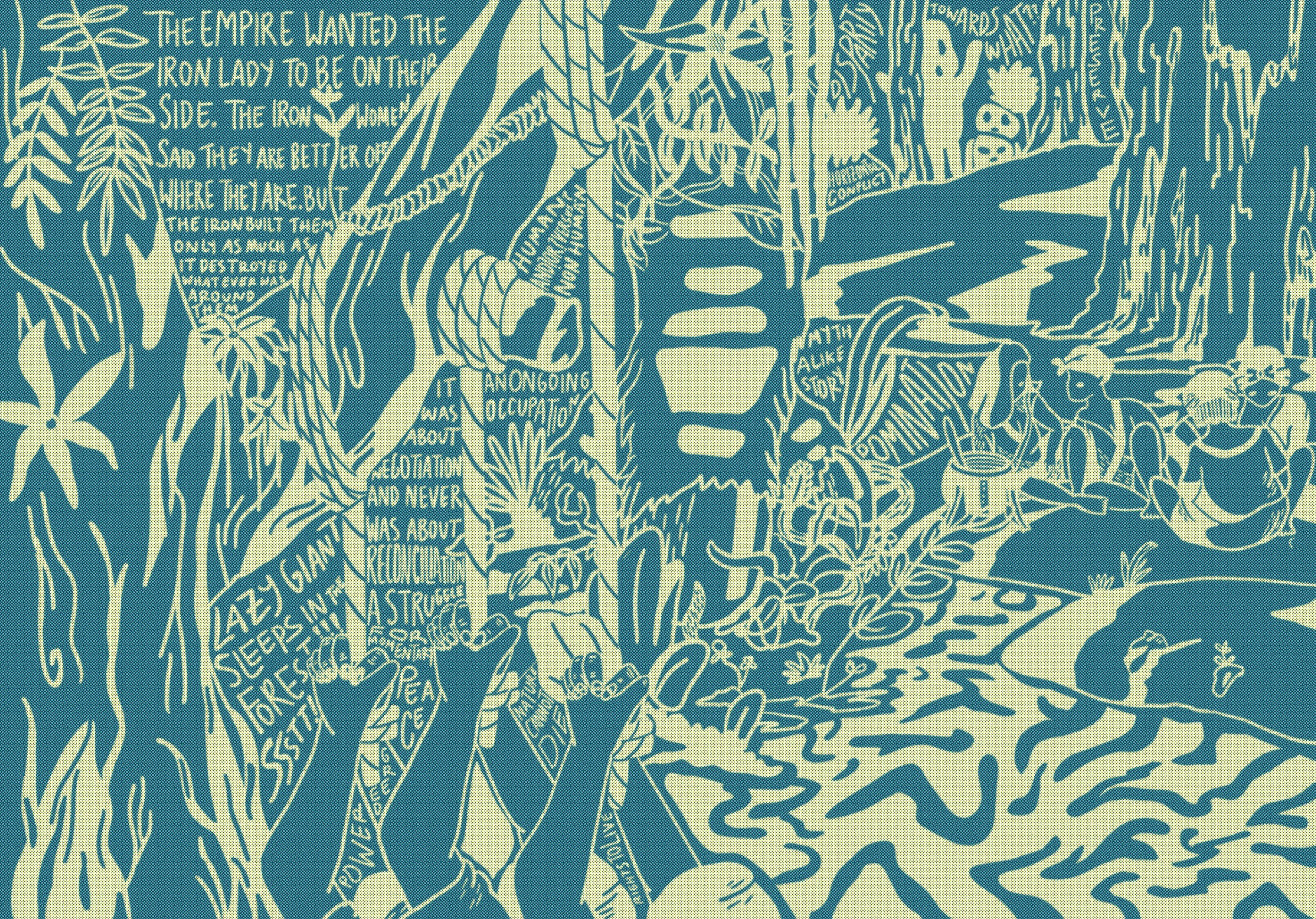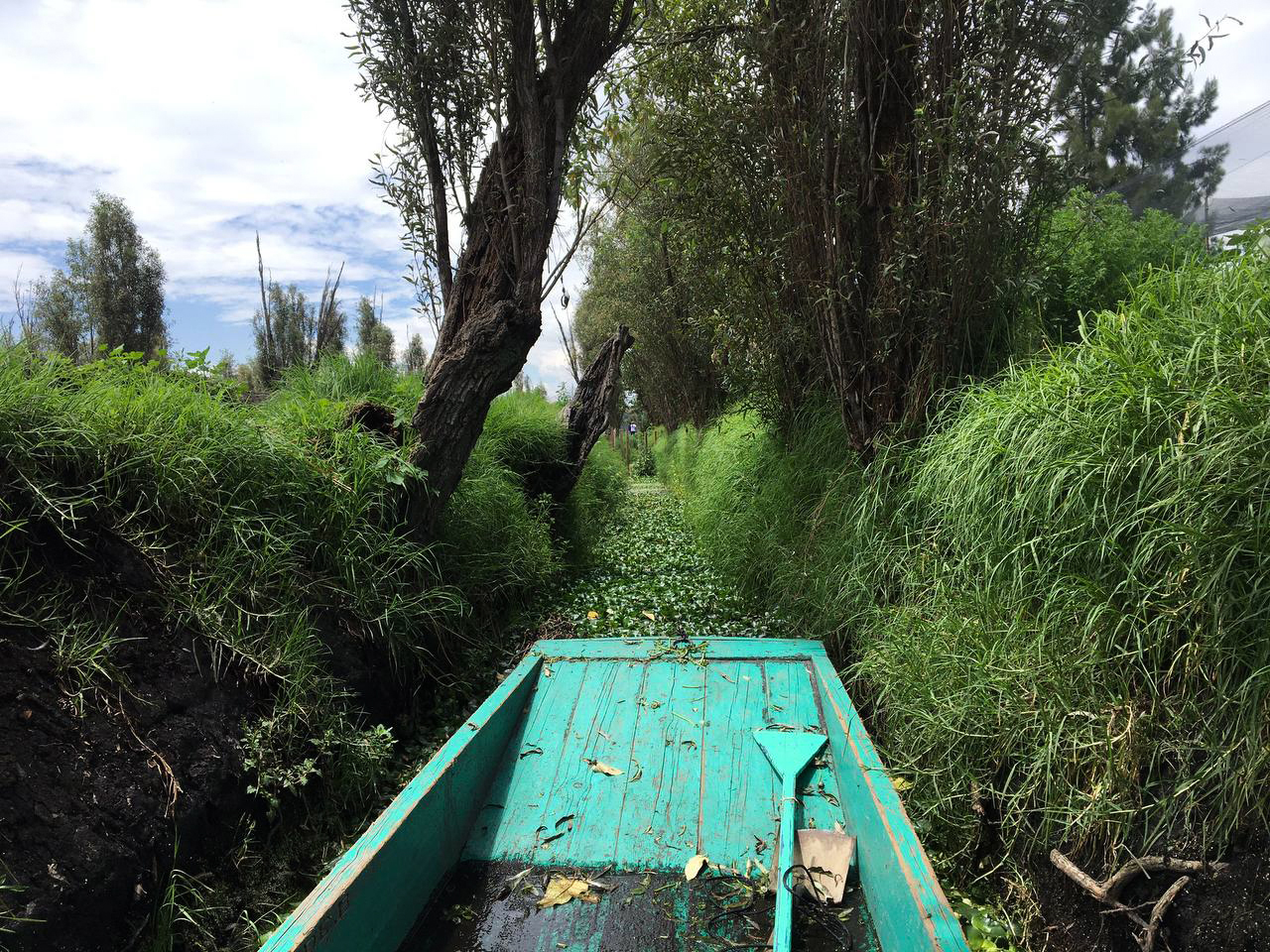Whispers
by: Walla Capelobo
In this second part of “The congonhas and the whispering mountains”, Walla guides us through the institution of the dream and the stones as founding elements of a continuous process of recreation of the Land against extractive invasion.

